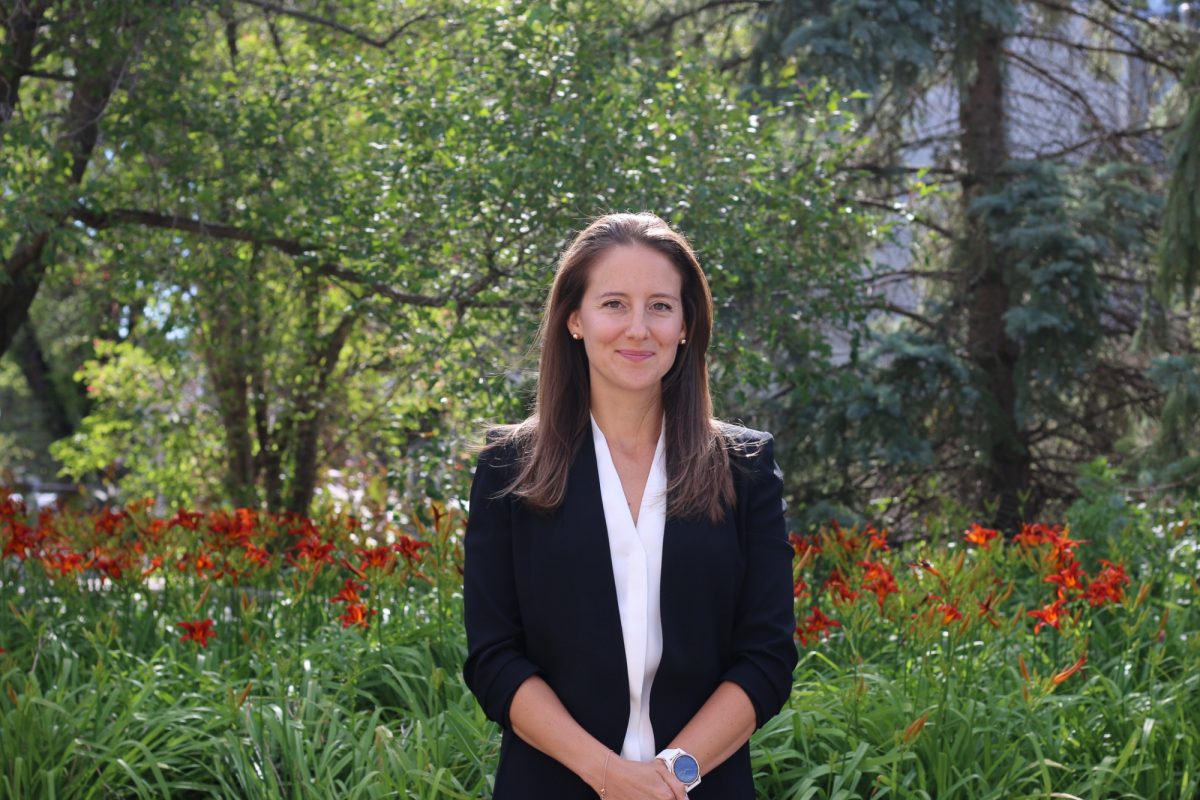
Dr. Danielle Gaucher, the new Canada Research Chair in Social Inequity, Gender and Public Policy.
Meet Danielle Gaucher, the new UM Canada Research Chair (CRC) in Social Inequity, Gender and Public Policy.
Danielle Gaucher, the new UM Canada Research Chair (CRC) in Social Inequity, Gender and Public Policy joined UM in 2019 as an assistant professor, psychology, Faculty of Arts. UM Today caught up with her to learn a bit about her and the research she is undertaking.
Tell us a bit about your research.
I am a social psychologist, which means that at the broadest level, my research examines how aspects of both the person and the social context influence and interact to affect people’s behaviour. For over a decade now, I’ve been interested in uncovering the barriers to social change that manifest at both the individual and institutional levels. This means uncovering the biases that serve to maintain the status quo that people hold in their heads and demonstrating how and why those biases become woven into the fabric of our social structures. And importantly, what we can do to overcome these biases. The research that we’ve done and will continue to conduct has implications for issues relevant to social change—whether it be intergroup relations, attitudes towards immigration, organizational and even climate change; though a lot of our research has focussed on issues relevant to gender inequality. As an academic, scientist, and mother of identical twin boys, gender equity is a topic that is very important to me. The overall goal of my CRC program of research is to investigate the contributors to social inequality and barriers to gender equality by examining the beliefs and human behaviours—that serve to maintain the status quo, inhibiting social change and gender equality. In my lab, we use scientific methods, archival, correlational, and experimental studies, to identify barriers to gender equality.
Tell us a bit about yourself.
I was born in Toronto where I lived for 18 years before heading to the University of Waterloo to complete my PhD. In 2010, I completed a post-doc at Princeton University before arriving at the University of Winnipeg, where I worked for 7 years. In 2019, I joined UM’s psychology department. Winnipeg is a diverse city, and a city of human rights; in a lot of ways it is a natural fit for studying the complex issues of social justice. I am very excited about UM’s Centre for Social Science Research and Policy where researchers will be able to collaborate and tackle complex social issues from multidisciplinary perspectives.
What does CRC funding mean to you as a researcher?
It means that we can grow the lab; we can employ and mentor students and get others involved in both the research process and in the sharing of our study results with Canadians.
How did you feel when you learned you were awarded your CRC?
I felt happy and relieved that we could carry out the work.
Who or what inspired you to do what you do? What do you love about it?
There are many people who have helped to inspire my academic pursuits along the way. I’ve been very fortunate to be surrounded by people who were always excited by the research process and who embodied the mentality required to be creative. My inspiration tends to come from people who show an intellectual openness and thoughtfulness about complex social issues. And for as long as I can remember, I’ve always cared deeply about the issues of social justice. When I observe things in the world and when people share their stories, it moves me to want to understand why things are the way they are—and study how to change them. My research demonstrates that the status quo can hold a lot of power in determining people’s social ideals, but it doesn’t need to. One of the assumptions running through a lot of my work is the notion that just because something currently “is” doesn’t mean that it “should be.”
What I try to focus on and love the most about the work is the constant learning something new about our social world. In some ways, I’m really a student at heart. Conducting the research that I do, every day, I get to learn something new about the way we interact with each other and the conditions that can foster change. Through teaching, mentoring, and publishing, I try to give back that information to others, and to really lean into the dialogue about social inequality in constructive ways. It is always very rewarding to see students taking the skills they’ve learned in academia and using them in the world, leaving it a little better than how they found it.
What about you would people find surprising about you?
When I’m not with my family, friends, or working, I’m often running outdoors with my kids and dog, Napook. I have a healthy obsession with running, cycling, and swimming and am currently training for my first Ironman 70.3.
Do you have any advice for students/young grad starting their career?
Study what you love and what you are passionate about, adopt a growth mindset whenever possible, and demonstrate persistence to meet your academic and career goals. Many very worthy academic and career goals are not easy to achieve—they require persistence. But with a growth mindset and a task or goal that is meaningful to you, it’s easier to persevere. Seeking balance—in health, work, and family—is something important to me as well.
Research at the University of Manitoba is partially supported by funding from the Government of Canada Research Support Fund.






